Sphynx Cat Health Issues: A Comprehensive Guide for Owners

Introduction
Sphynx cats are undeniably unique, with their striking hairless appearance and playful personalities. Check out their uniqueness in our blog, The Unique Beauty of Sphynx Cats: A Comprehensive Guide. These affectionate companions have stolen the hearts of many cat lovers around the globe. However, like any breed, they come with their own set of health challenges that every Sphynx owner should be aware of. In this guide, we’ll delve into the most common health issues faced by Sphynx cats and offer practical tips to help you keep your feline friend happy and healthy.
Skin-related Health Issues
Dermatitis
One of the primary concerns for Sphynx cat owners is dermatitis. With no fur to shield their skin, Sphynx cats can be particularly sensitive to environmental factors. Symptoms may include redness, itching, and flaking. To alleviate this condition, regular moisturizing with vet-approved products and avoiding harsh chemicals in your home can be incredibly beneficial. You might even consider using a gentle, fragrance-free lotion specifically designed for pets.
Sunburn
Just like humans, Sphynx cats are prone to sunburn, especially if they spend time outdoors. Their delicate skin requires protection from harmful UV rays. If your Sphynx enjoys sunbathing, make sure to provide a shaded area and apply pet-safe sunscreen to exposed areas like their ears and nose. It’s essential to be mindful of their outdoor time to prevent painful sunburns.
Acne
Believe it or not, cats can get acne too! Sphynx cats are particularly susceptible to this condition due to excess oil production on their skin. Regularly cleaning your cat's chin and face can help prevent those unsightly breakouts. A soft, damp cloth can work wonders to keep their skin clear and healthy.
To keep them safe and healthy, here's our guide to the proper grooming techniques and tips that you can use. Have a quick read on this article: Essential Sphynx Cat Grooming Tips: Bathing, Nails & More.
Ear Problems
Ear Mites
Ear mites are a common nuisance for many cats, and Sphynx cats are no exception. These tiny parasites can cause itching and irritation. Regular ear cleaning and routine check-ups with your veterinarian can help catch mite infestations early, preventing discomfort for your pet.
Infections
Due to their lack of ear hair, Sphynx cats may also be more prone to ear infections. Keeping their ears clean and dry is essential in preventing these painful conditions. Consider scheduling regular vet visits to monitor their ear health and ensure that any potential infections are treated promptly.
Respiratory Conditions
Upper Respiratory Infections
Sphynx cats can be more susceptible to respiratory infections. A clean-living environment with proper ventilation can significantly reduce the risk of these infections. Ensure that your home is free from dust and allergens to promote healthy breathing for your feline friend.
Asthma
Some Sphynx cats may develop asthma, which can be exacerbated by environmental allergens. If you notice any signs of labored breathing, consult your veterinarian immediately. Keeping a clean, dust-free home is essential in minimizing asthma triggers.
Make yourselves feel at ease without thinking of these respiratory conditions with the help of our guide in Creating a Comfortable Home for Your Sphynx Cat.
Gastrointestinal Issues
Diarrhea
Sphynx cats often have sensitive stomachs, and sudden dietary changes can lead to diarrhea. To avoid this uncomfortable issue, transition to new foods gradually and stick to a balanced diet recommended by your veterinarian. A stable diet can help maintain their digestive health.
Constipation
On the other hand, constipation can also pose a problem. Make sure your Sphynx has access to fresh water and includes enough fiber in their diet to promote regular bowel movements. A vet can recommend high-fiber foods to keep your cat’s digestion on track.
Nourishing Your Sphynx Kitten: A Guide to the Perfect Diet, with the use of this guide, you can ensure that you are giving them the best meals and diet plans you could ever give to keep them strong and healthy, both mind and body.
Dental Problems
Gingivitis
Dental health is vital for Sphynx cats, as they are prone to gingivitis. This condition can lead to more severe health issues if left untreated. Regular dental check-ups and brushing your cat’s teeth are essential for maintaining good oral hygiene. Consider using a toothbrush and toothpaste specifically designed for cats to make the process easier.
Periodontal Disease
If gingivitis goes unchecked, it can progress to periodontal disease, leading to tooth loss and other serious health complications. Establishing a consistent dental care routine is crucial in preventing this condition. Don’t hesitate to ask your veterinarian for tips on how to best care for your cat’s teeth.
Genetic Predispositions
HCM (Hypertrophic Cardiomyopathy)
Sphynx cats have a genetic predisposition to HCM, a heart condition that can affect their overall health. Regular veterinary check-ups, including cardiac evaluations, are crucial in managing this potential issue. Being proactive about your cat’s heart health can make all the difference.
Respiratory Issues
Due to their unique physiology, Sphynx cats may experience respiratory challenges. Keep an eye out for any signs of labored breathing or coughing, and don’t hesitate to seek prompt veterinary care if needed.
Environmental Sensitivities
Allergies
Sphynx cats can be sensitive to environmental allergens, including dust, pollen, and certain food ingredients. Identifying and minimizing exposure to these triggers can greatly improve their quality of life. Consider using air purifiers to help keep your home allergen-free.
Temperature Sensitivity
Without fur, Sphynx cats are particularly sensitive to temperature extremes. Providing a comfortable and climate-controlled environment is essential for their well-being. Ensure your home is neither too hot nor too cold and provide cozy blankets or heated beds for added comfort.
Behavioral Concerns
Stress-related Problems
Sphynx cats can be sensitive to changes in their environment, which may lead to stress-related behavioral issues. Providing a stable and nurturing home can help mitigate these problems. Maintain a consistent routine and introduce changes gradually to keep your cat feeling secure.
Aggression
Some Sphynx cats may exhibit aggressive tendencies, often stemming from fear or anxiety. Understanding their triggers and providing positive reinforcement training can help manage this behavior. Engaging in regular playtime and offering plenty of love and attention can also foster a calmer demeanor.
Play more with your kittens and engage with them with the use of our guide The Playful Side of Sphynx Cats: Toys and Activities to further enhance their behavior and training.
Routine Care for Sphynx Cats
Diet and Nutrition
A balanced diet tailored to their specific needs is crucial for Sphynx cats. Consult with your veterinarian to ensure they are getting the right nutrients for their growth and overall health. Quality ingredients can make a significant difference in their well-being.
Grooming
While they may lack fur, Sphynx cats still require regular grooming. Bathing to remove excess oils, nail trimming, and ear cleaning should be part of their routine care. Establishing a grooming schedule will help keep your Sphynx looking and feeling their best.
Veterinary Check-ups
Regular veterinary check-ups are vital in monitoring the overall health of your Sphynx cat. Early detection of any issues can lead to more effective treatment, ensuring your beloved companion enjoys a long, happy life.
You can also check our quick take on the proper Sphynx Cat Care to have a daily routine care for your pet kittens.
Tips for a Healthy Sphynx Cat
- Provide a balanced diet with high-quality ingredients.
- Ensure a clean and safe living environment free from allergens.
- Regularly monitor for any changes in behavior or health.
- Establish a consistent grooming routine.
- Seek prompt veterinary care for any concerns.
Conclusion
Owning a Sphynx cat can be an incredibly rewarding experience, filled with love and joy. By being aware of their specific health concerns and taking proactive steps to address them, you can ensure your furry friend enjoys a long, happy, and healthy life. Discover expert insights on Sphynx cat health concerns in this comprehensive guide.
For further information on Sphynx cat grooming and maintenance, Contact Us. Elevate your Sphynx cat care routine with valuable tips and recommendations to enhance their quality of life.
And if you do not yet have any Sphynx kitten, this is your sign to adopt one. You can Check Our Available Hairless Sphynx Cats for Sale and learn about our Adoption Process to start this journey. Do not miss out!
FAQs
What is the lifespan of a Sphynx cat?
On average, Sphynx cats live between 12 to 15 years, but with proper care, they can live even longer.
How can I prevent skin issues in my Sphynx cat?
Regular moisturizing, avoiding harsh chemicals, and providing a shaded outdoor environment can help prevent skin problems.
Are Sphynx cats more prone to respiratory problems?
Yes, they may be more susceptible to respiratory conditions, so it's essential to maintain a clean living environment.
What is the best way to handle a Sphynx cat's sensitive skin?
Gentle cleansing and moisturizing with products specifically designed for cats can help keep their skin healthy.
How often should I take my Sphynx cat to the vet?
Regular check-ups, at least once a year, are recommended to monitor their overall health and catch any potential issues early.

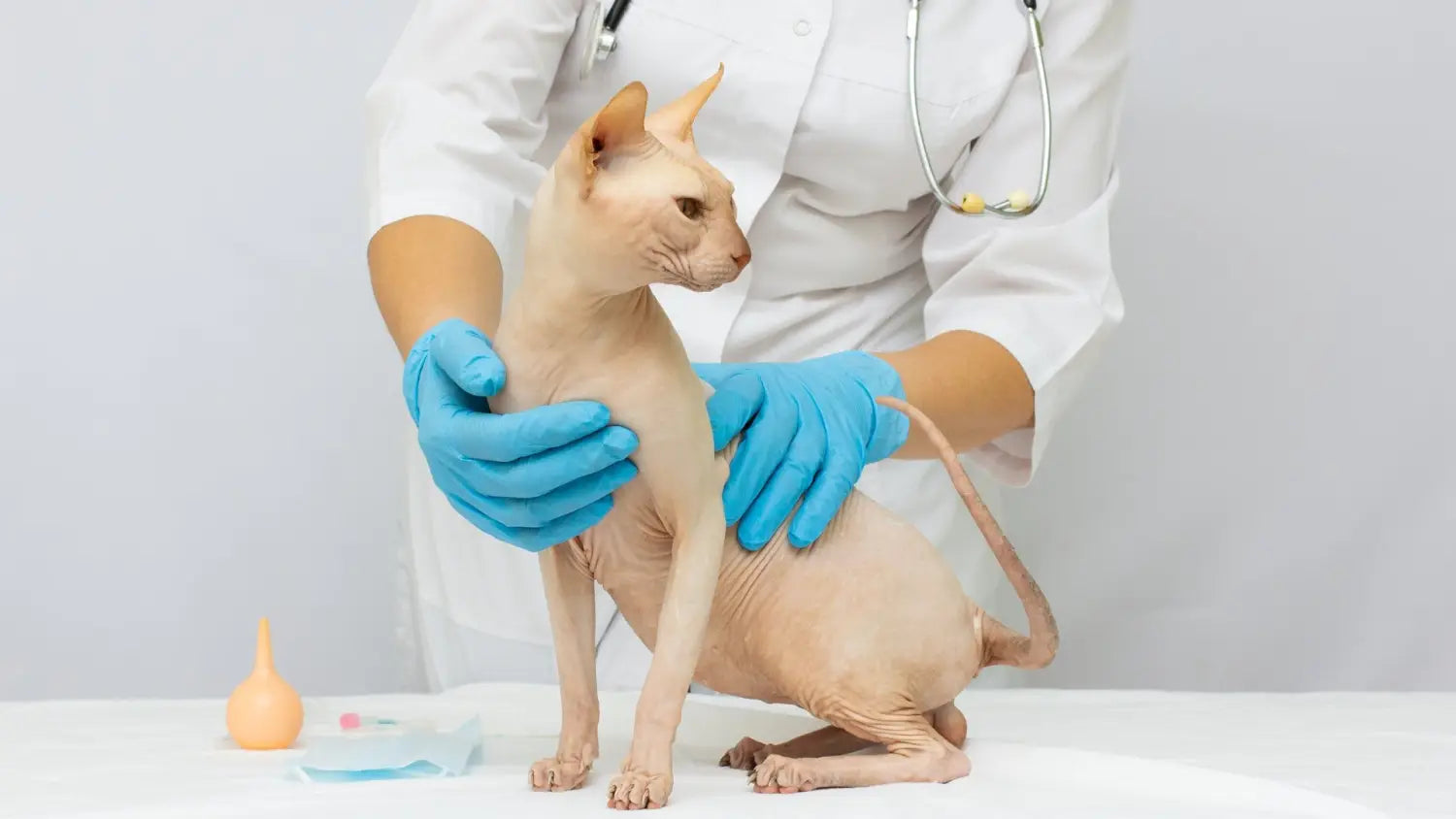
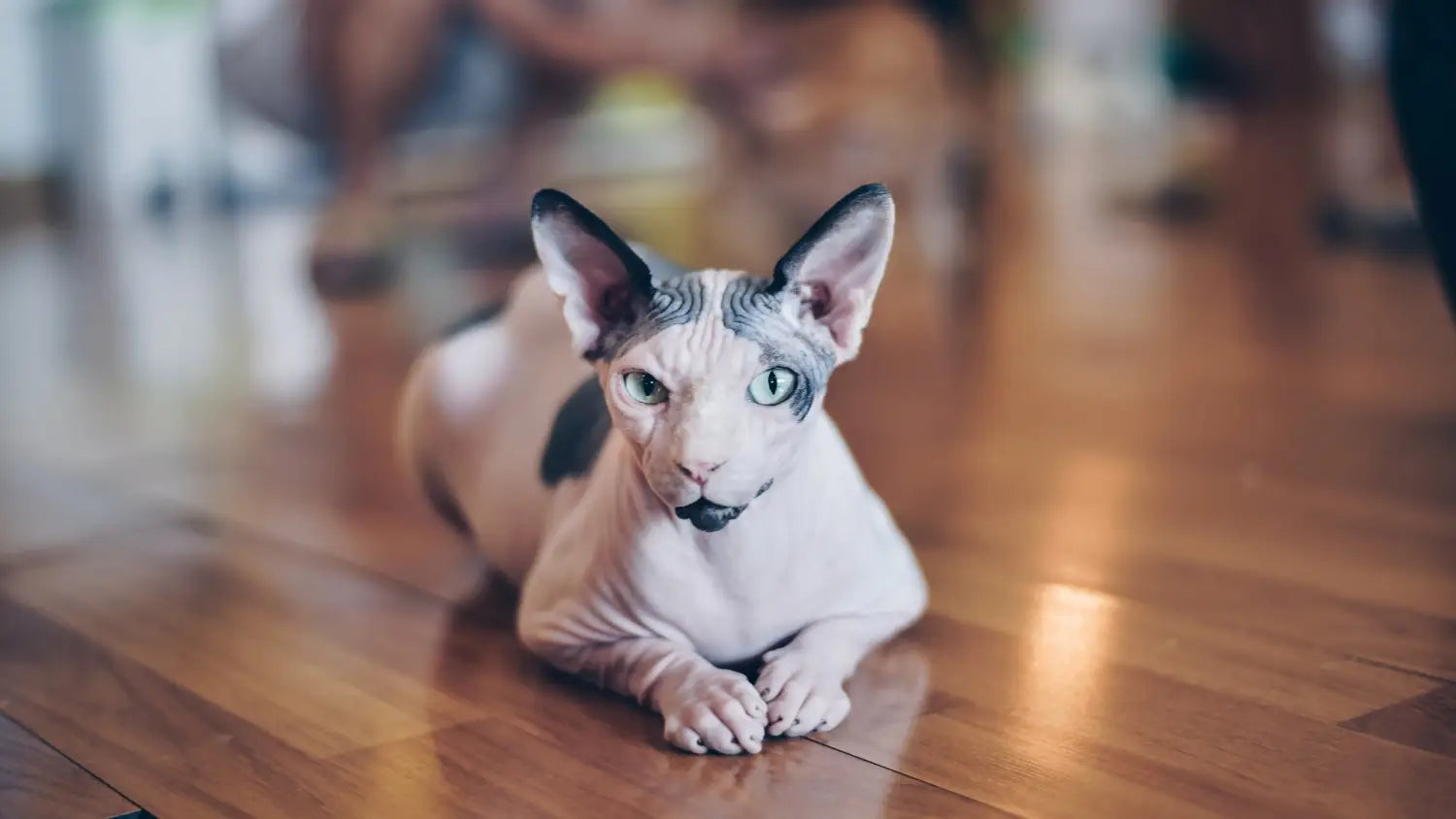
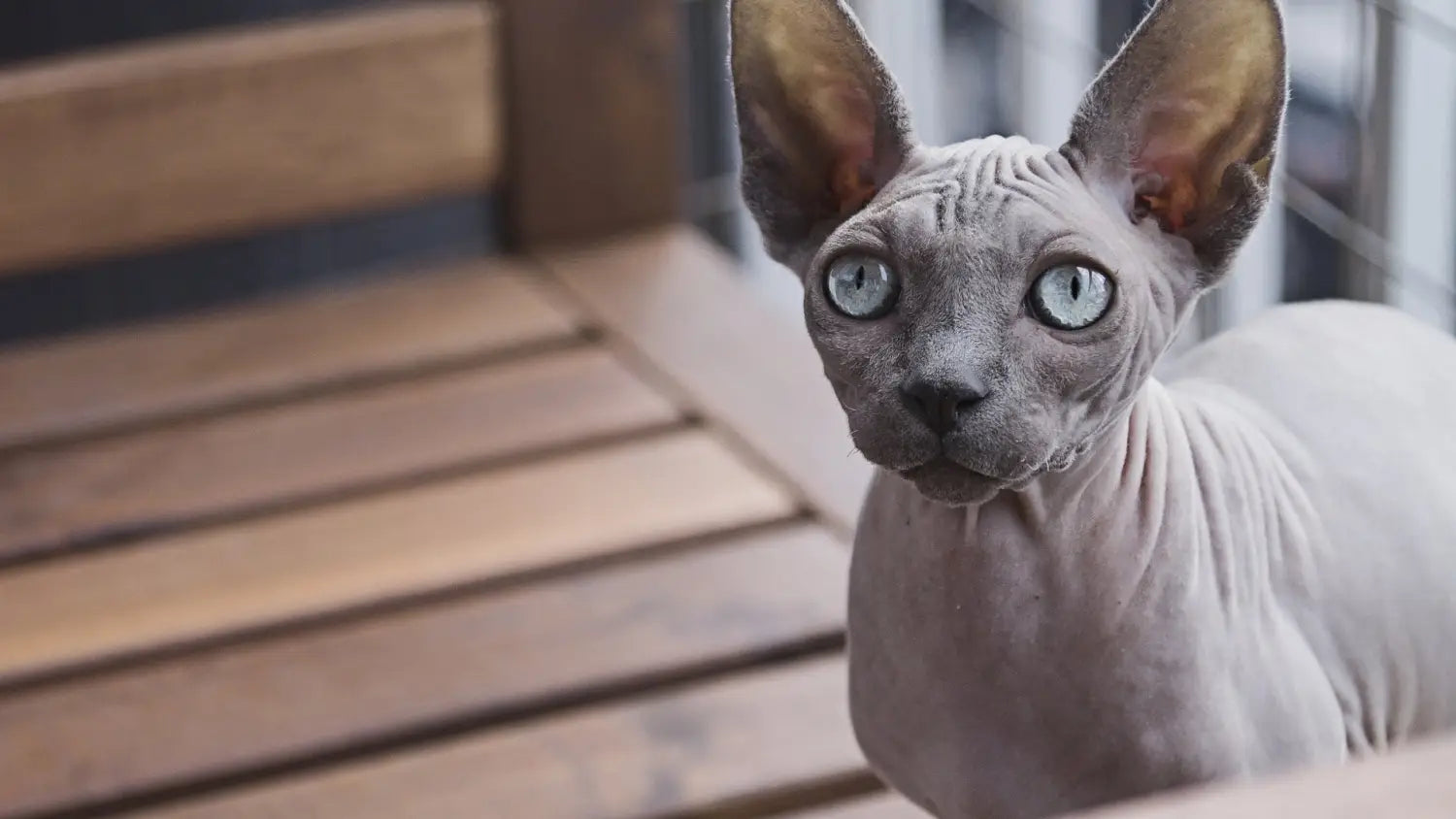


























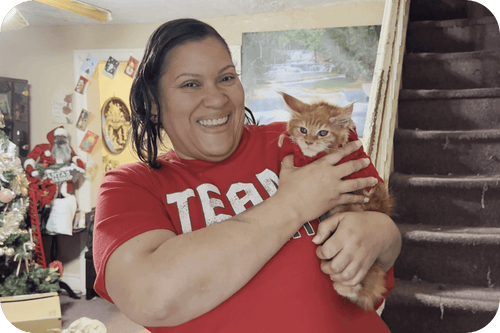












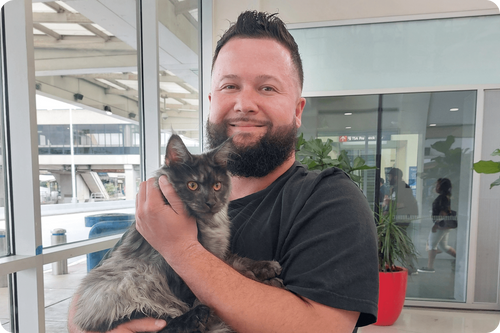











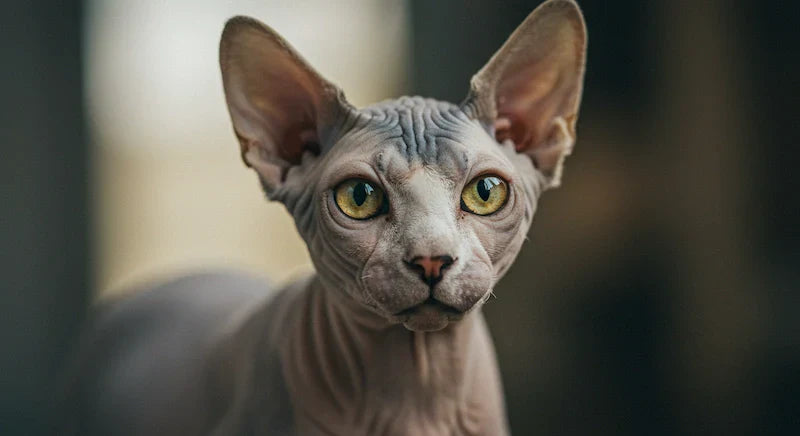
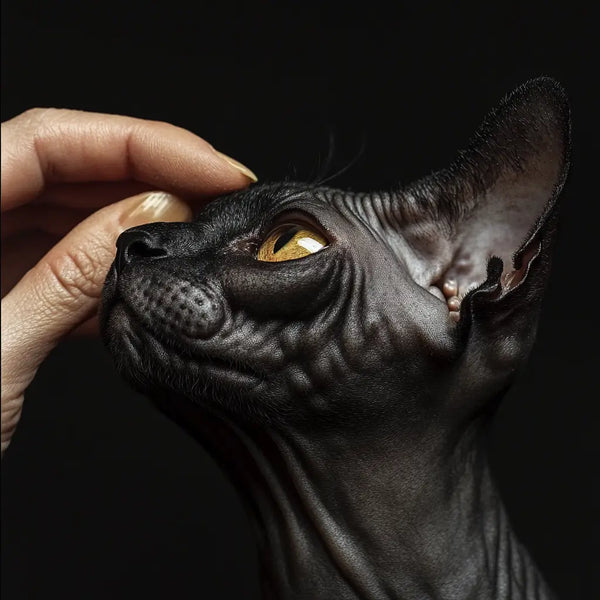

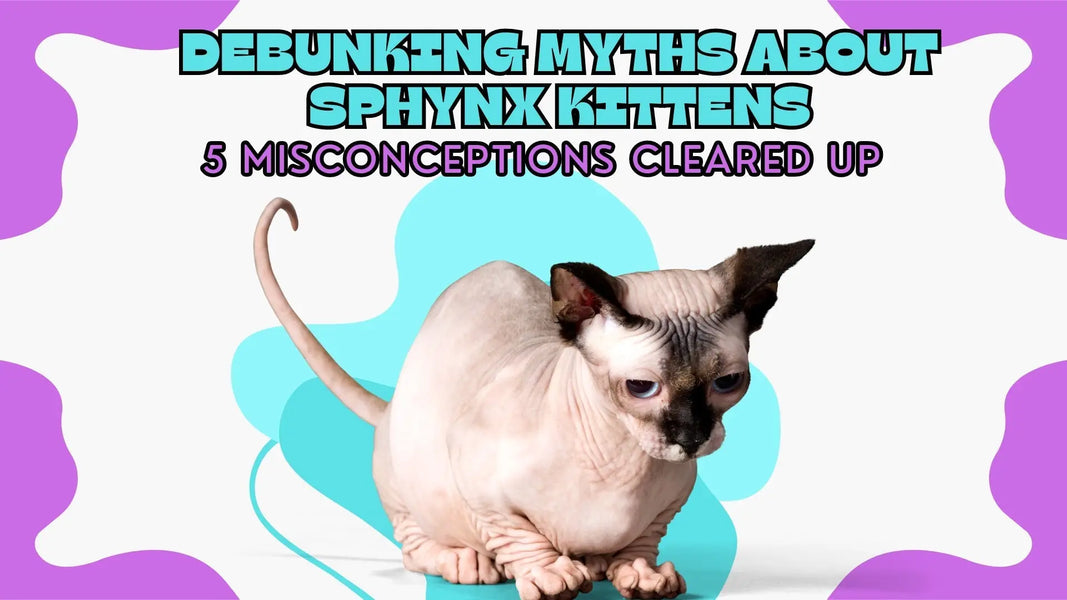





Comments(0)